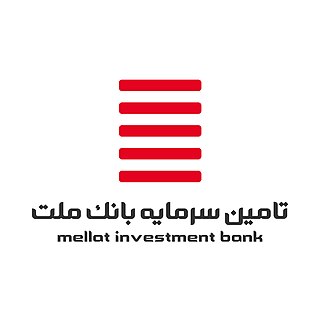Offering may refer to:
Offering may refer to:
General article: Korban

A stock exchange, securities exchange, or bourse is an exchange where stockbrokers and traders can buy and sell securities, such as shares of stock, bonds and other financial instruments. Stock exchanges may also provide facilities for the issue and redemption of such securities and instruments and capital events including the payment of income and dividends. Securities traded on a stock exchange include stock issued by listed companies, unit trusts, derivatives, pooled investment products and bonds. Stock exchanges often function as "continuous auction" markets with buyers and sellers consummating transactions via open outcry at a central location such as the floor of the exchange or by using an electronic trading platform.

A security is a tradable financial asset. The term commonly refers to any form of financial instrument, but its legal definition varies by jurisdiction. In some countries and languages people commonly use the term "security" to refer to any form of financial instrument, even though the underlying legal and regulatory regime may not have such a broad definition. In some jurisdictions the term specifically excludes financial instruments other than equities and fixed income instruments. In some jurisdictions it includes some instruments that are close to equities and fixed income, e.g., equity warrants.
Maya may refer to:
An initial public offering (IPO) or stock launch is a public offering in which shares of a company are sold to institutional investors and usually also to retail (individual) investors. An IPO is typically underwritten by one or more investment banks, who also arrange for the shares to be listed on one or more stock exchanges. Through this process, colloquially known as floating, or going public, a privately held company is transformed into a public company. Initial public offerings can be used to raise new equity capital for companies, to monetize the investments of private shareholders such as company founders or private equity investors, and to enable easy trading of existing holdings or future capital raising by becoming publicly traded.
A monster is a type of fictional creature found in horror, fantasy, science fiction, folklore, mythology and religion.
Revelation, in religion and theology, is the act of revealing through communication with supernatural entities.
The Gift or The Gifts may refer to:
A ghost is a spirit of a dead person that may appear to the living.
A family is a domestic or social group.

The secondary market, also called the aftermarket and follow on public offering, is the financial market in which previously issued financial instruments such as stock, bonds, options, and futures are bought and sold. The initial sale of the security by the issuer to a purchaser, who pays proceeds to the issuer, is the primary market. All sales after the initial sale of the security are sales in the secondary market. Whereas the term primary market refers to the market for new issues of securities, and "[a] market is primary if the proceeds of sales go to the issuer of the securities sold," the secondary market in contrast is the market created by the later trading of such securities.
A private investment in public equity, often called a PIPE deal, involves the selling of publicly traded common shares or some form of preferred stock or convertible security to private investors. It is an allocation of shares in a public company not through a public offering in a stock exchange. PIPE deals are part of the primary market. In the U.S., a PIPE offering may be registered with the Securities and Exchange Commission on a registration statement or may be completed as an unregistered private placement.
Dark side, Dark Side, or Darkside may refer to:
Restricted stock, also known as restricted securities, is stock of a company that is not fully transferable until certain conditions (restrictions) have been met. Upon satisfaction of those conditions, the stock is no longer restricted, and becomes transferable to the person holding the award. Restricted stock is often used as a form of employee compensation, in which case it typically becomes transferable ("vests") upon the satisfaction of certain conditions, such as continued employment for a period of time or the achievement of particular product-development milestones, earnings per share goals or other financial targets. Restricted stock is a popular alternative to stock options, particularly for executives, due to favorable accounting rules and income tax treatment.
A witch is a practitioner of witchcraft.
The Message may refer to:
Believer(s) or The Believer(s) may refer to:

Stock consist of all the shares by which ownership of a corporation or company is divided. A single share of the stock means fractional ownership of the corporation in proportion to the total number of shares. This typically entitles the shareholder (stockholder) to that fraction of the company's earnings, proceeds from liquidation of assets, or voting power, often dividing these up in proportion to the amount of money each stockholder has invested. Not all stock is necessarily equal, as certain classes of stock may be issued, for example, without voting rights, with enhanced voting rights, or with a certain priority to receive profits or liquidation proceeds before or after other classes of shareholders.
A public offering is the offering of securities of a company or a similar corporation to the public. Generally, the securities are to be listed on a stock exchange. In most jurisdictions, a public offering requires the issuing company to publish a prospectus detailing the terms and rights attached to the offered security, as well as information on the company itself and its finances. Many other regulatory requirements surround any public offering and they vary according to jurisdiction.
The Calling may refer to:

Mellat Investment Bank, also known as Mellatib is an Iranian investment banking firm based in Tehran. The company offers investment banking services. Mellat Investment Bank is a private joint stock company.